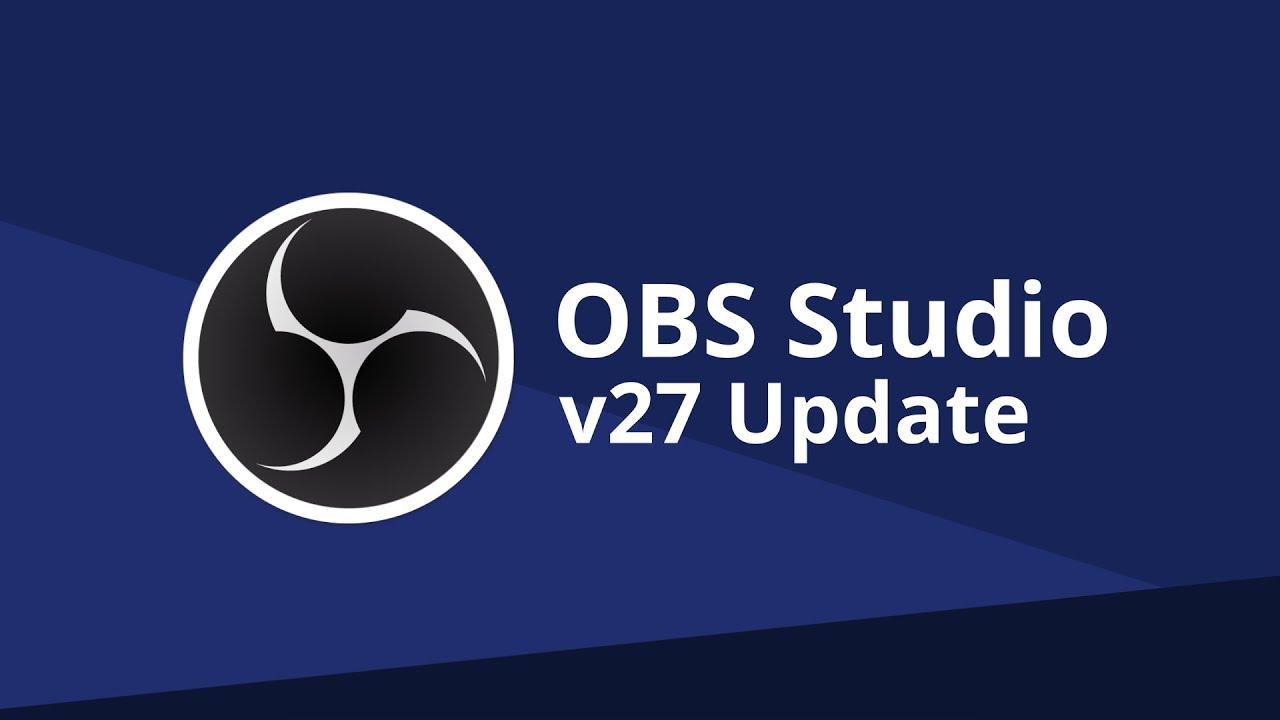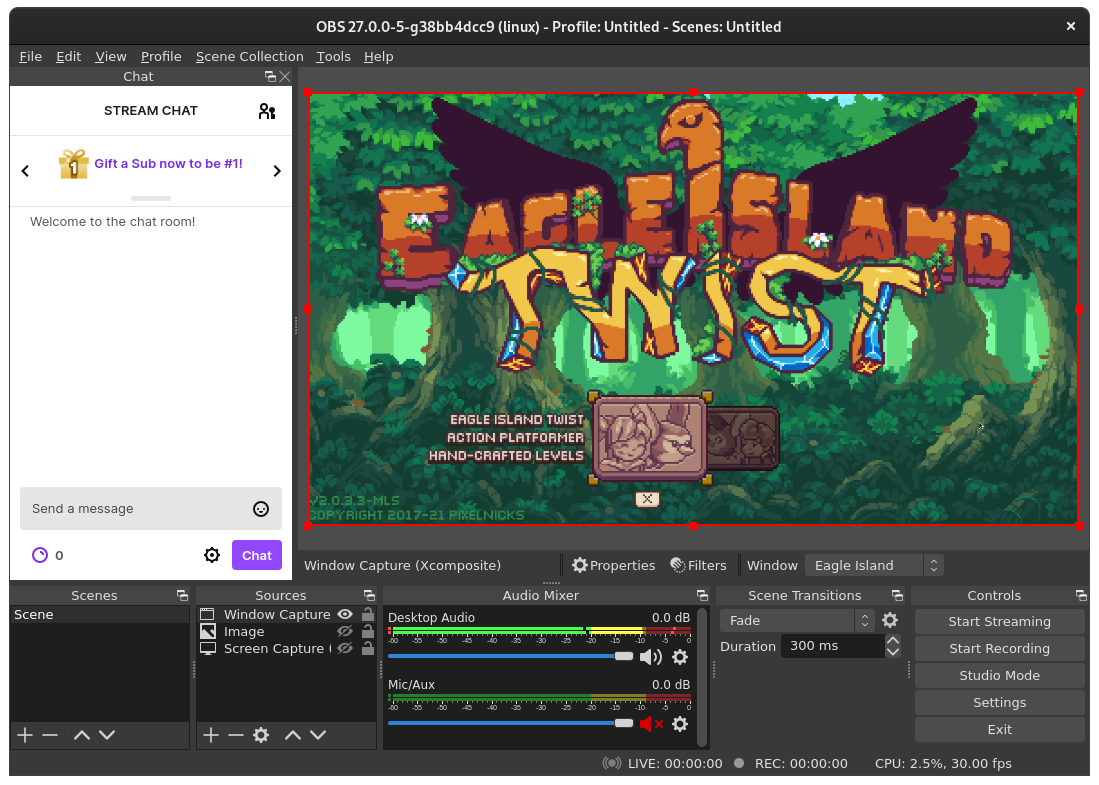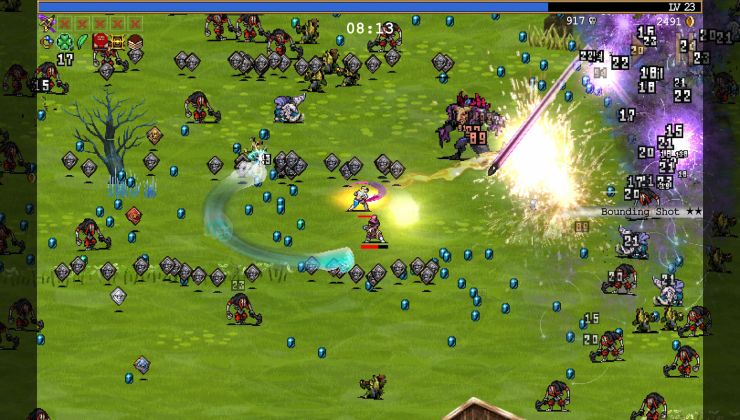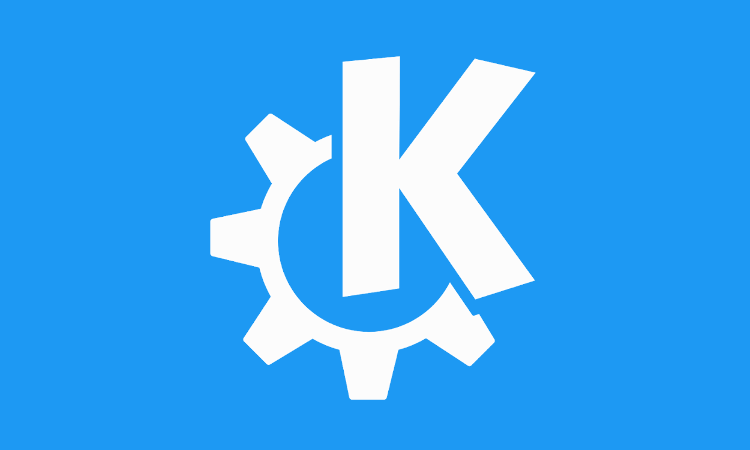OBS Studio 27.0 is now officially out marking one of the biggest releases they've ever done, especially if you're a Linux user and it's looking great.
This release further closes the gap between Linux, macOS and Windows on certain features. On the Linux side they've managed to now hook up service integration along with browser panel docking! What does this mean though? You can now attach any sort of web address into your OBS Studio to have everything together in one window - it's useful! With service integration, you're also able to login to Twitch and Restream directly too.
Service integration only being available in the version from their Ubuntu PPA, as they explained to me, is due to some secret keys that can't be shared and so they only do it in their official Ubuntu build. However, you can do all the same with the new browser docking support, service integration is just a convenience thing.
What else? Native Wayland support! You can capture windows and entire screens on Wayland with PipeWire and XDG Portals. It does need a fully up to date distribution, since PipeWire is still pretty new overall and there's still a fair amount of work to be done on it overall but it's quite stable as a next-generation PulseAudio replacement.
Another big one is Undo support. Even small tweaks to your setup can cause major issues, and end up requiring time to revert. A proper Undo command with support across lots of OBS makes recording and livestreaming easier than ever.
You can download from the official site and GitHub. Read more about the changes in their forum post.

Direct Link
I’m pretty sure, that since it’s GPLv2, and they have made modifications to the Ubuntu ppa, that are not available in the source code, unless they explicitly state that their software is dual licensed, that means that it’s not FOSS anymore. In fact, I’m quite sure that this is the kind of modification that must be contributed upstream. So either they need to provide build instructions for how to obtain API keys/secrets and make it work on other platforms.... or you know.. get the unhappy FSF/GNU stare, and a walk of shame.The PPA has no code changes compared to what is in the repository. The credentials are passed in to CMake at compile-time as variables. Service integrations for "unofficial" builds are possible, but requires those maintainers to create their own Twitch API credentials and OAuth backend.
I’m pretty sure, that since it’s GPLv2, and they have made modifications to the Ubuntu ppa, that are not available in the source code, unless they explicitly state that their software is dual licensed, that means that it’s not FOSS anymore. In fact, I’m quite sure that this is the kind of modification that must be contributed upstream. So either they need to provide build instructions for how to obtain API keys/secrets and make it work on other platforms.... or you know.. get the unhappy FSF/GNU stare, and a walk of shame.The PPA has no code changes compared to what is in the repository. The credentials are passed in to CMake at compile-time as variables. Service integrations for "unofficial" builds are possible, but requires those maintainers to create their own Twitch API credentials and OAuth backend.
I’m pretty sure, that since it’s GPLv2, and they have made modifications to the Ubuntu ppa, that are not available in the source code, unless they explicitly state that their software is dual licensed, that means that it’s not FOSS anymore. In fact, I’m quite sure that this is the kind of modification that must be contributed upstream. So either they need to provide build instructions for how to obtain API keys/secrets and make it work on other platforms.... or you know.. get the unhappy FSF/GNU stare, and a walk of shame.
The source code used to build the PPA is identical to what is in the repo. The credentials themselves are cmake variables.
The PPA has no code changes compared to what is in the repository. The credentials are passed in to CMake at compile-time as variables. Service integrations for "unofficial" builds are possible, but requires those maintainers to create their own Twitch API credentials and OAuth backend.Thanks for the explanation, really interesting to see how it's being done :)







 How to set, change and reset your SteamOS / Steam Deck desktop sudo password
How to set, change and reset your SteamOS / Steam Deck desktop sudo password How to set up Decky Loader on Steam Deck / SteamOS for easy plugins
How to set up Decky Loader on Steam Deck / SteamOS for easy plugins
See more from me